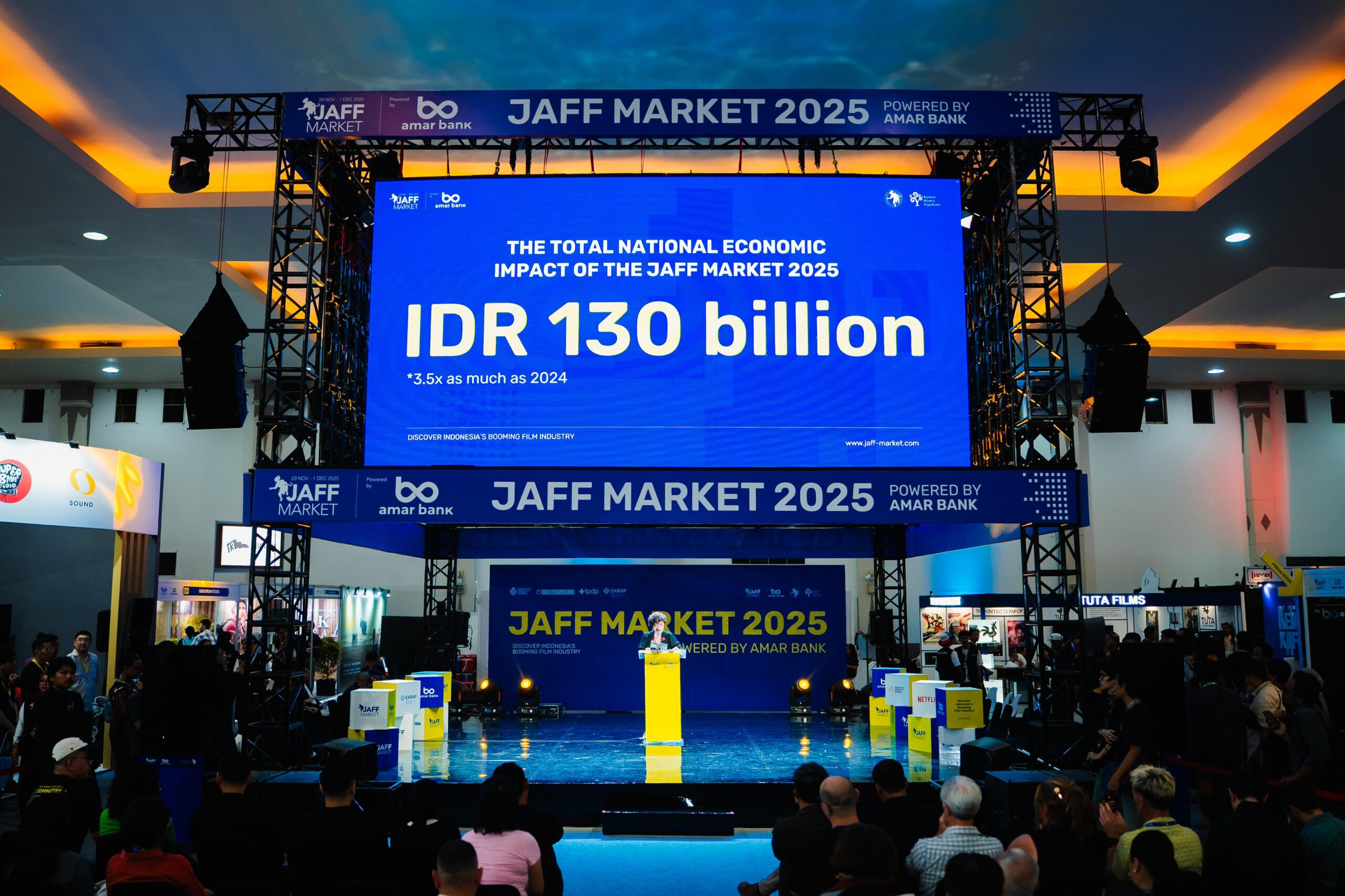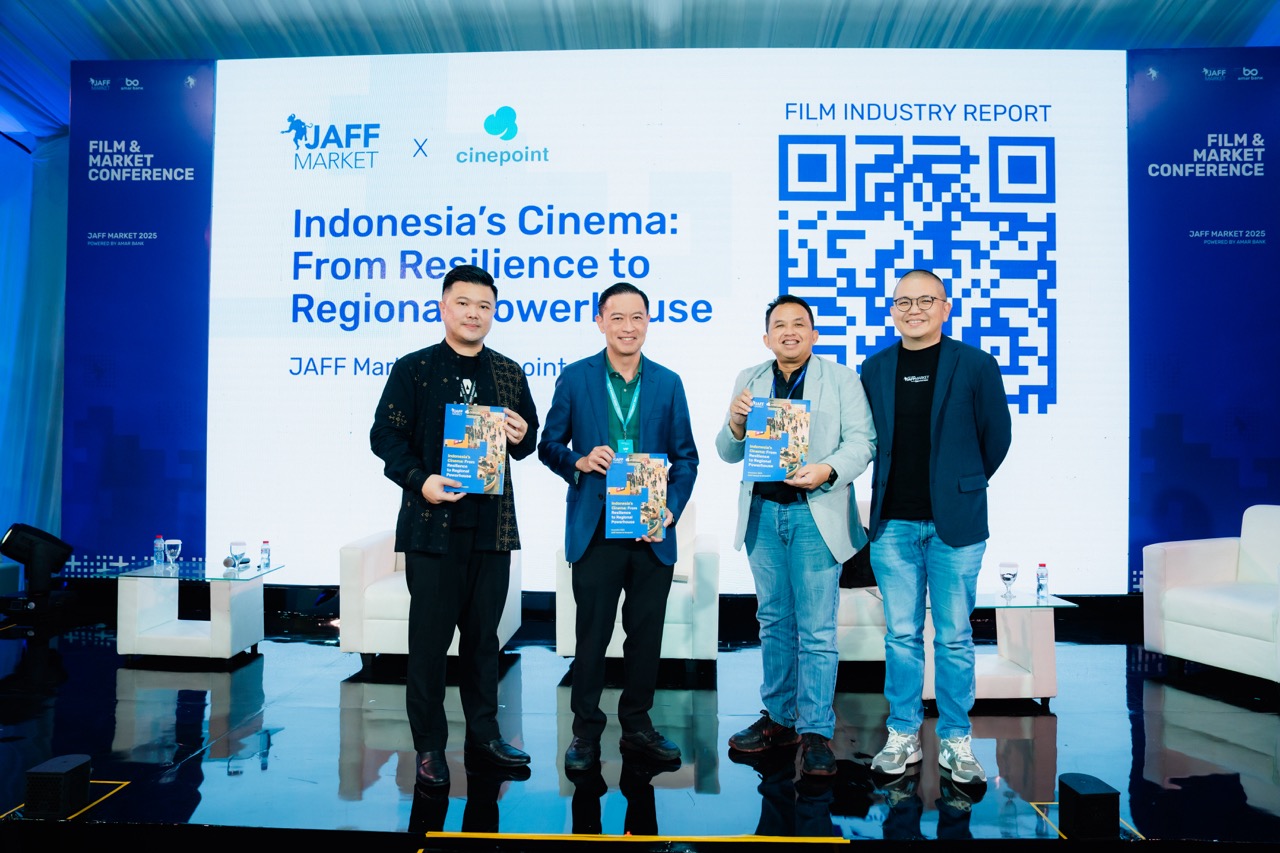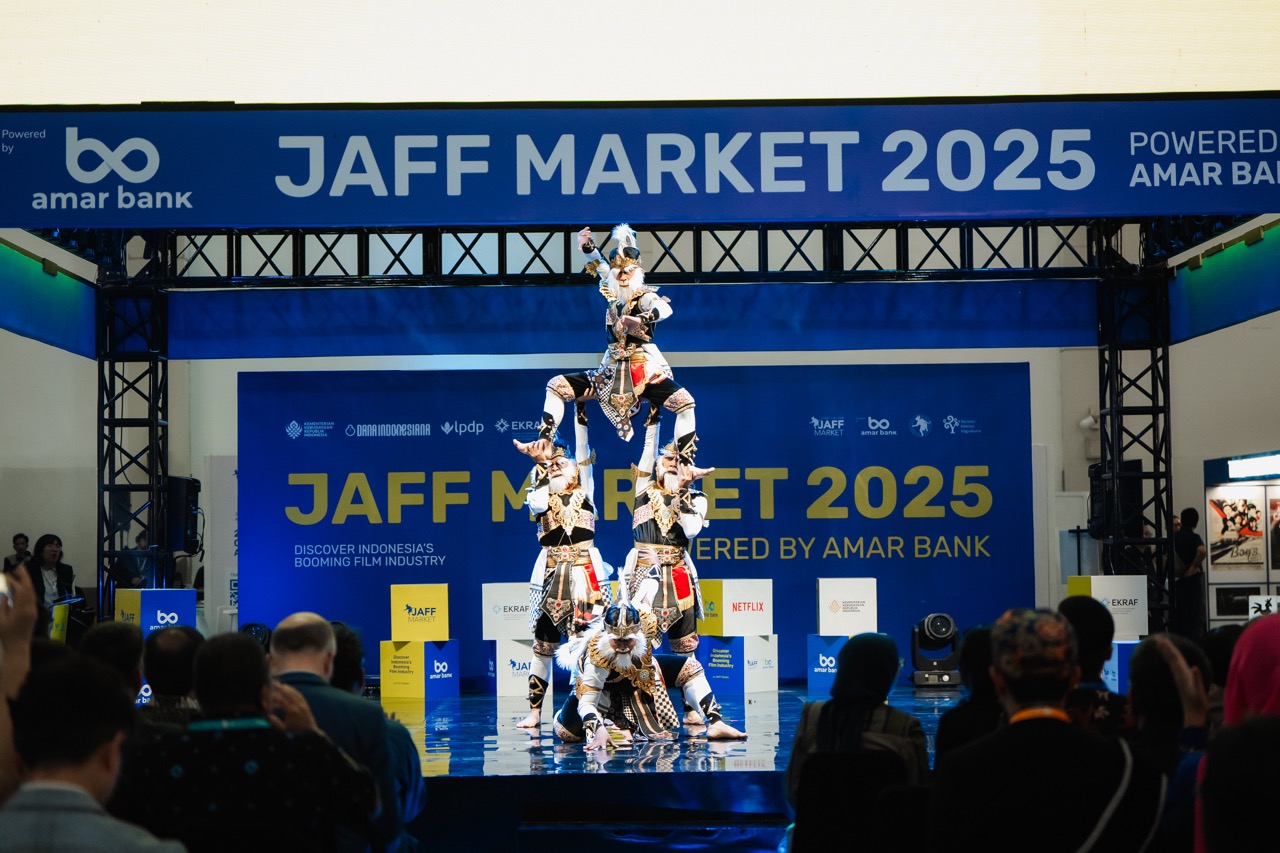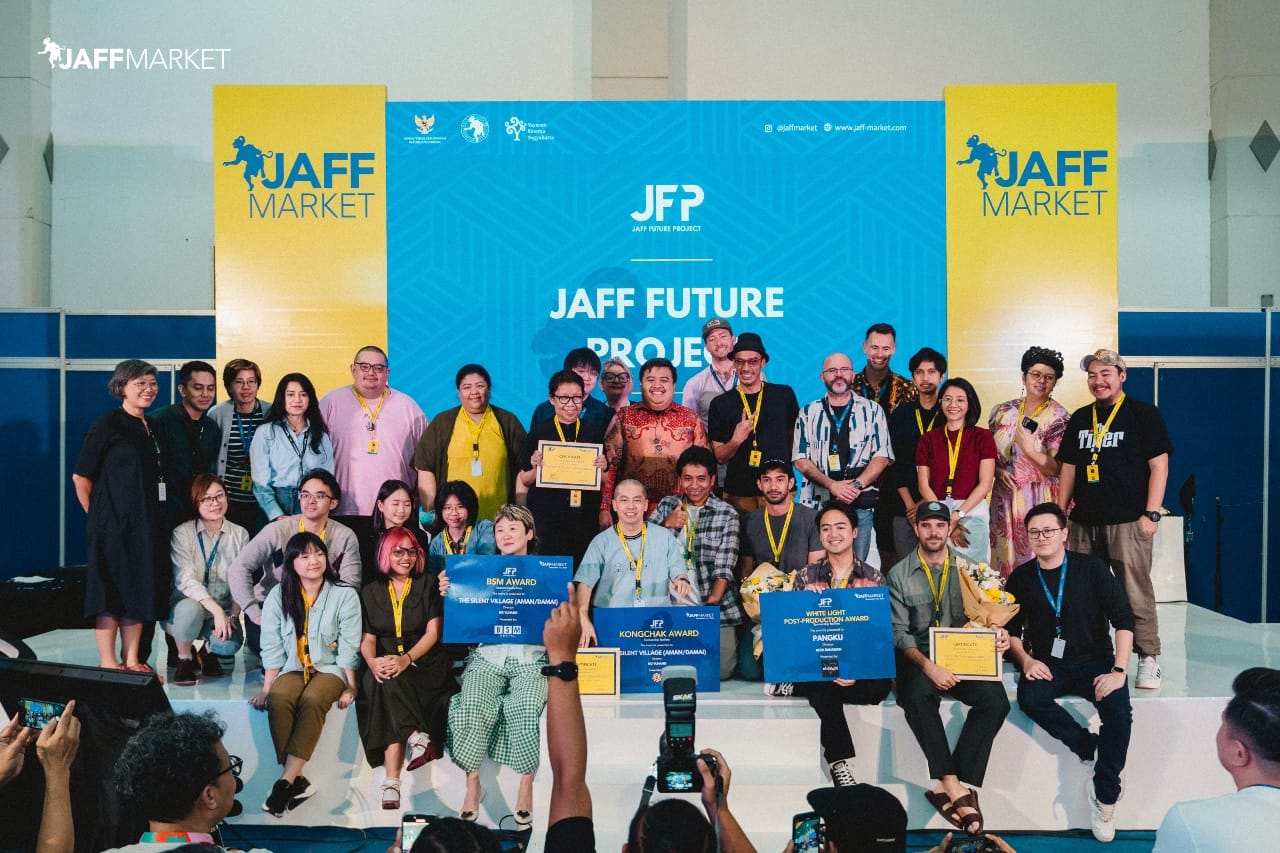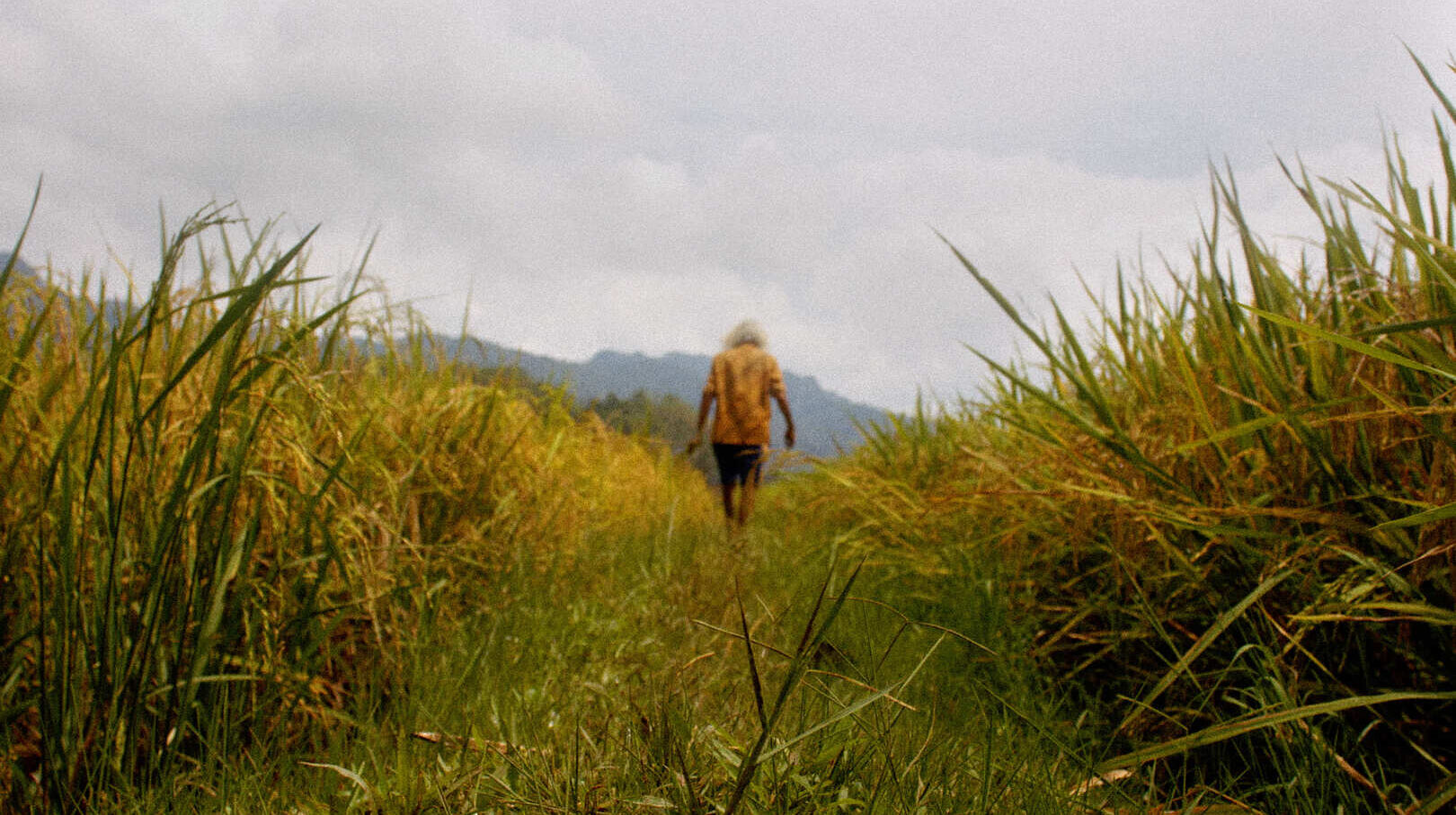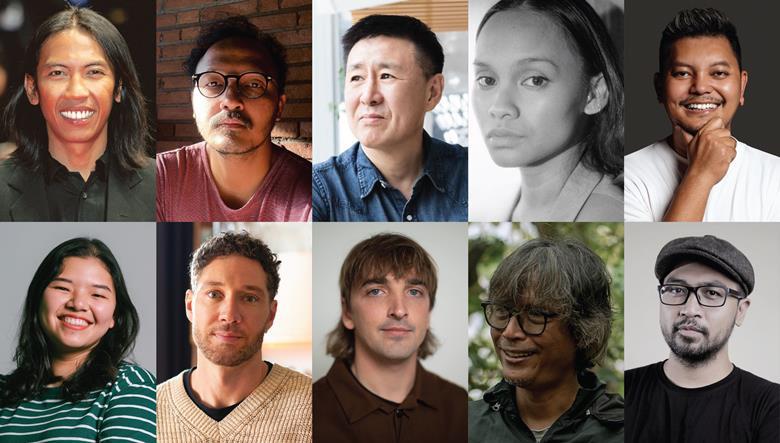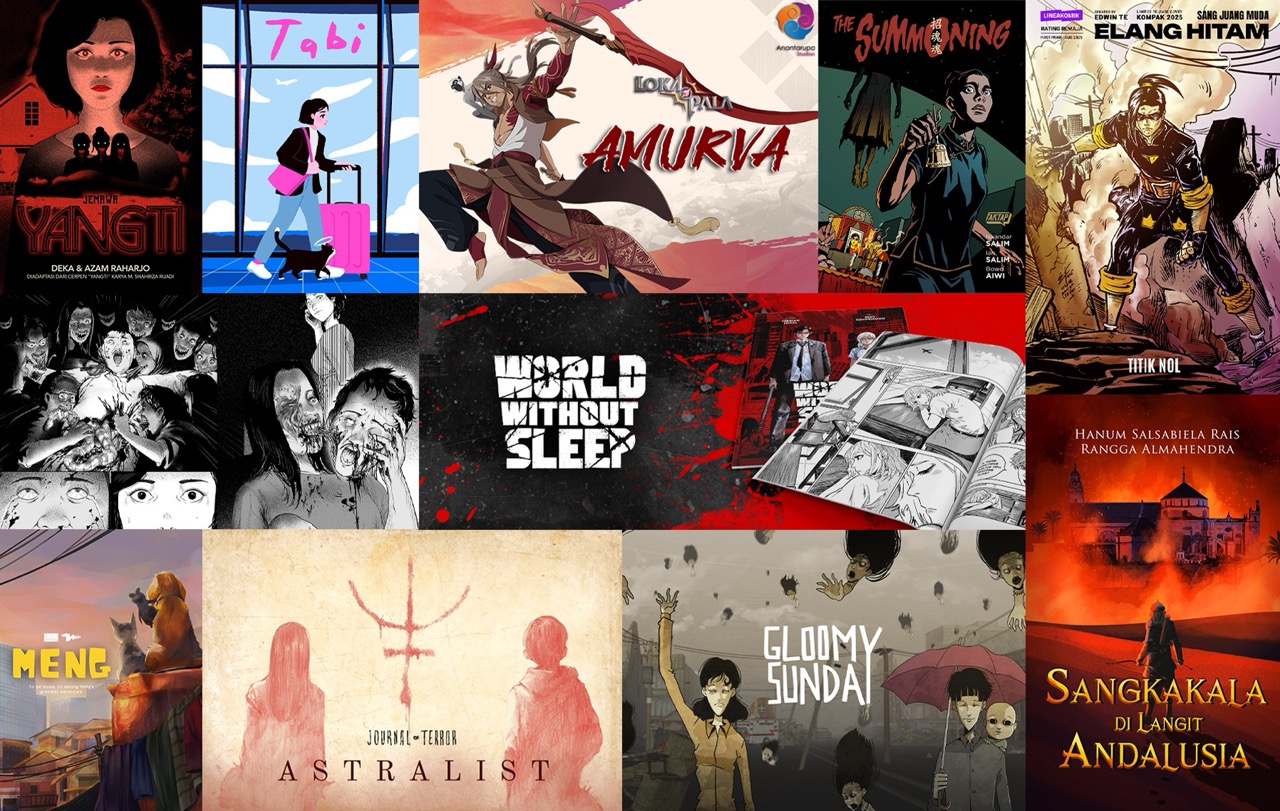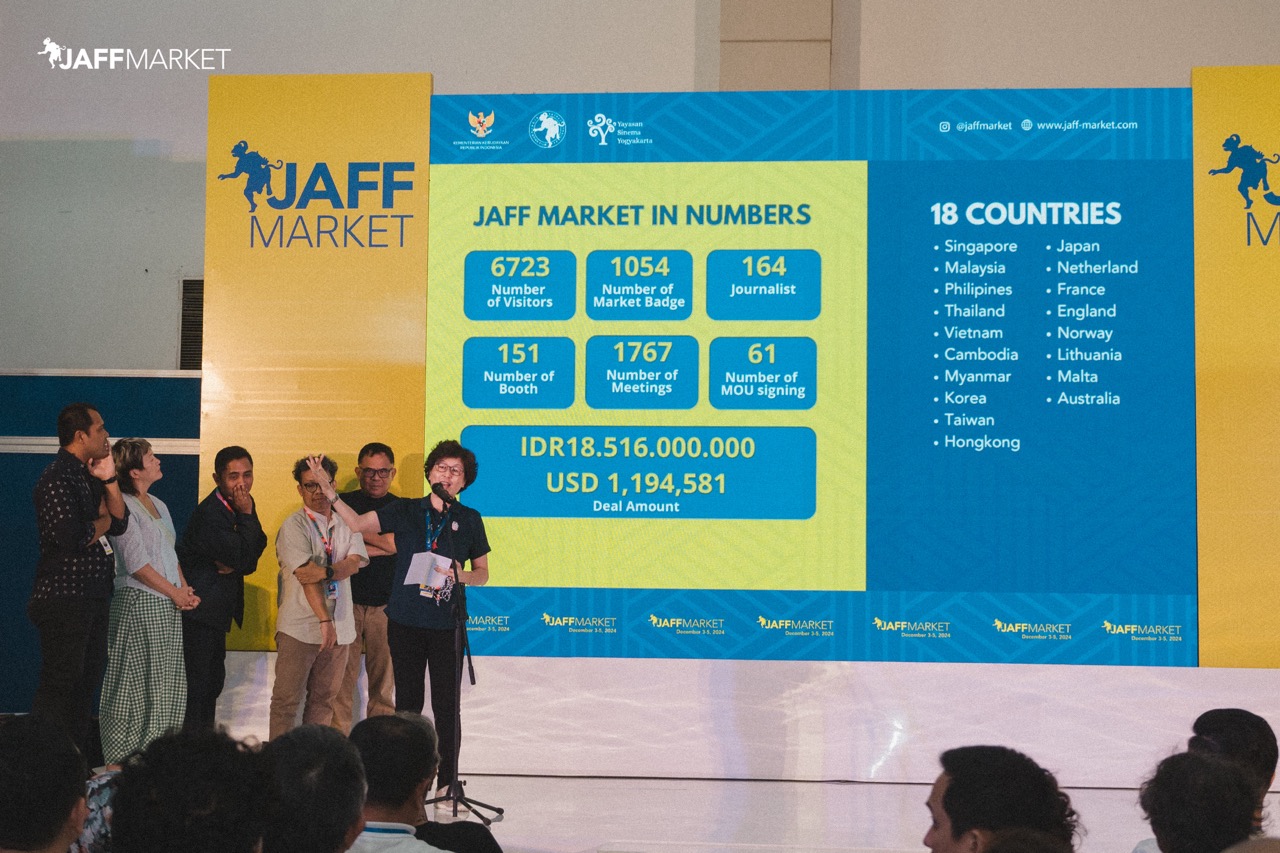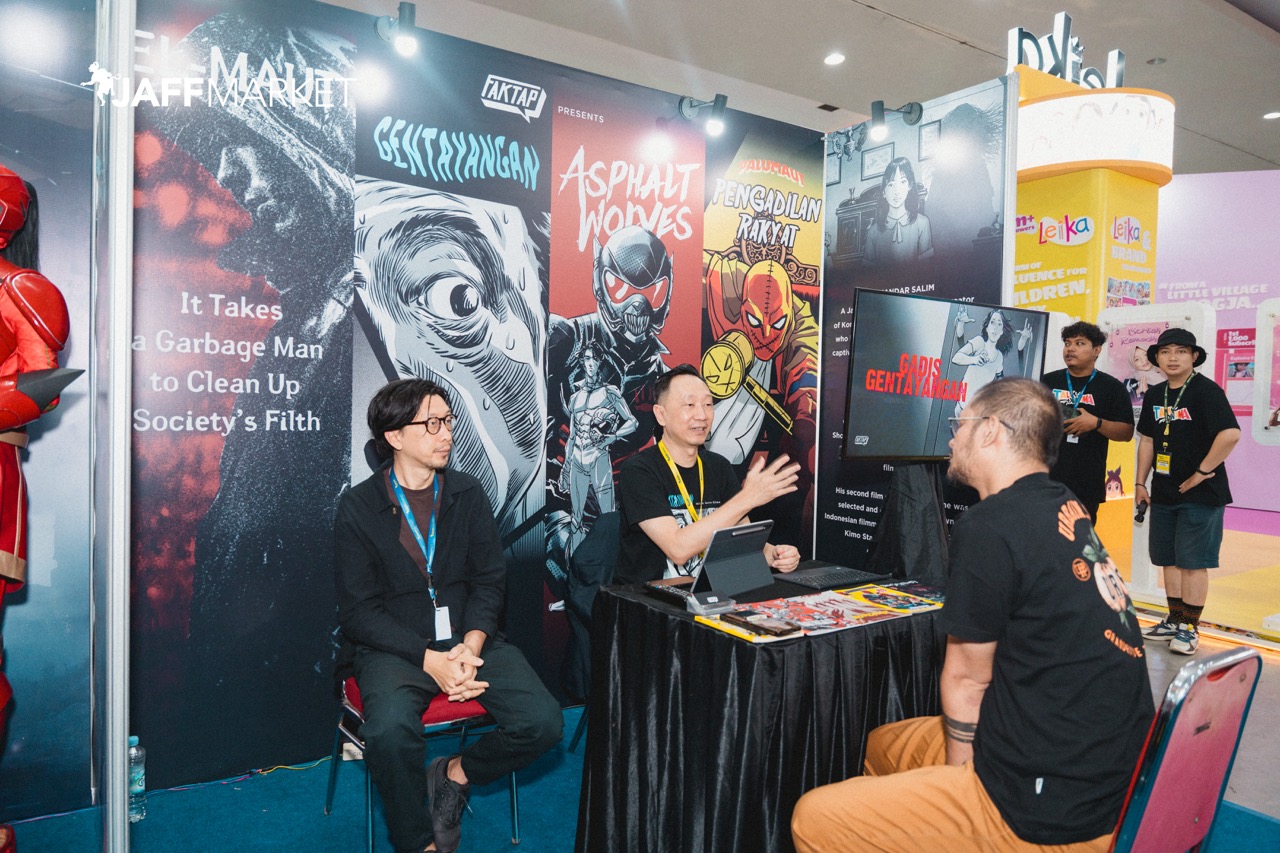Yogyakarta, 01 December 2025 — JAFF Market 2025 Powered by Amar Bank officially wrapped today at the Jogja Expo Center (JEC), Yogyakarta, following three days of concentrated market activity, international networking, and deal-oriented conversations that underscored Indonesia’s growing influence within the screen and creative sectors.
Throughout the event, the JEC became a meeting ground for policy makers, private capital, creative ideas and commercial strategy. Industry stakeholders ranging from producers, studios, and national film bodies to investors, technology platforms, and filmmakers from Asia, Europe, Australia, and North America gathered to explore co-production models, funding pathways, and content development strategies shaped by Indonesia’s fast-evolving creative economy.
This second edition recorded its strongest participation to date, welcoming:
- 116 exhibitors and 122 companies
- Over 1431 accredited industry participants
- Over 7784 visitors
- Participants from over 14 countries
- 2433 one-on-one meetings for programs/exhibitors, pitching sessions, and closed-door business discussions
JAFF Market also deepened its cross-sector collaboration through strong engagement from both public institutions and private enterprise. Backing from national ministries, international cultural organizations, and regional authorities, combined with rising participation from corporations, state-owned enterprises, and consumer and technology brands, signals growing confidence in the creative sector as a long-term economic driver.
Key partners this year included the Ministry of Culture (Kemenkebud), Ministry of Creative Economy (Kemenekraf), Embassy of France in Indonesia, Motion Picture Association (MPA), the Asian Film Alliance Network (AFAN), Adelaide Film Festival (AFF), CNC, and a broad range of industry leaders across finance, energy, technology, and consumer sectors.
“JAFF Market continues to grow not just in scale, but in purpose. We are building a platform that connects ideas to capital, talent to opportunity, and Indonesia to the world. What we saw over these 3 days is proof that Indonesia’s film industry is ready for deeper investment, stronger regulation, and wider collaboration,” said Linda Gozali, Market Director JAFF Market.
A series of industry awards and development grants were announced during the closing ceremony, supported by regional studios, international institutions, and corporate partners. These accolades ranged from financial support and post-production services to international market access, designed to provide selected projects with tangible support toward production and global exposure.
This year’s recipients included:
- Motion Picture Association (MPA) Award, travel and accommodation support for two producers from two projects to attend the Asia Pacific Screen Awards (APSA) 2026, awarded to Our Son and My Mother.
- MTN International Facilitation to Rotterdam Lab 2026, awarded to Evil Underground.
- MTN International Facilitation to Hong Kong Asia Film Financing Forum (HAF) 2026, awarded to A Life Full of Holes.
- Kongchak Studio Award, sound design post-production support valued at USD 10,000, awarded to Ghost Island.
- White Light Award, color grading and mastering services valued at USD 15,000, awarded to Rose Pandanwangi
- Prodigihouse Ecosystem Award, editing and color grading support valued at USD 15,000, awarded to Ghost Island.
- Prodigihouse Ecosystem (Color Grading) Award, color grading support valued at USD 9,000, awarded to Our Son.
- Brandlink Indonesia Award, production equipment support valued at IDR 500,000,000 (USD 30,000) per project, awarded to A Life Full of Holes and To My Dearest, My Dear….
- Visinema Award, development grants of IDR 50,000,000 (USD 3,000) per project, awarded to To My Dearest, My Dear… and Ghost Island.
- The United Team of Art Award, development grant of IDR 100,000,000 (USD 4,000), awarded to A Life Full of Holes.
- In addition, through the JAFF Content Market, in collaboration with the Ministry of Creative Economy (Kemenekraf) and Asia Content Film Market (ACFM), two intellectual properties were selected to be showcased at ACFM 2026. This distinction was awarded to Elang Hitam and World Without Sleep.
The closing of JAFF Market 2025 signaled a growing confidence in Indonesia as a serious player in the global screen industry. With rising international attendance, stronger institutional backing, and an increasingly diverse range of projects and partners, the Market has evolved into a key meeting point for Asian and global film professionals.
At the closing of Southeast Asia’s largest film market, Variety also announced the Hot Picks Indonesian Films for 2026. A total of 12 titles were highlighted as must-watch films for the coming year, namely: Children of Heaven , Dance of the Damned (Badut Gendong), Four Seasons in Java (Empat Musim Pertiwi), Garuda: Dare to Dream (Garuda di Dadaku), Ghost in the Cell, The Last Flight (Penerbangan Terakhir), Na Willa, Operation: Pesta Pora (Operasi Pesta Pora), Rainbow in Mars (Pelangi di Mars), Sea Speaks His Name (Laut Bercerita), Sleep No More (Monster Pabrik Rambut), and Suzanna Witchcraft (Suzzanna: Santet Dosa Di Atas Dosa)
Looking ahead, JAFF Market will continue to strengthen its position as a catalyst for cross-border collaboration, investment, and talent development. The Market is committed to expanding its international network, refining its industry programs, and creating deeper engagement between Indonesian creators and the global film ecosystem.
“We are not just hosting an event — we are building an industry platform,” said Linda Gozali, Market Director of JAFF Market. “Our focus going forward is sustainability, impact, and access. We want Indonesian stories to travel, Indonesian talent to be seen, and Indonesian projects to be viable, competitive, and investable across global markets.”
As part of its long-term commitment to data-driven ecosystem development, JAFF Market also released its inaugural JAFF Market Film Industry Report in partnership with Cinepoint, providing the most comprehensive overview to date of Indonesia’s admissions growth, economic impact, production trends, affordability metrics, and regional competitiveness. The report is available for public download.
JAFF Market also reaffirmed its commitment to working closely with government bodies, international organizations, and private-sector partners to ensure long-term growth for Indonesia’s creative economy. The combination of policy support, private investment, and talent development continues to shape JAFF Market’s role as a bridge between local voices and global opportunities.
With this year’s edition setting a new benchmark in scale, engagement, and output, JAFF Market now turns its attention toward its next edition — carrying forward its mission to elevate Indonesian cinema while positioning Southeast Asia as a key hub within the international film industry landscape.

